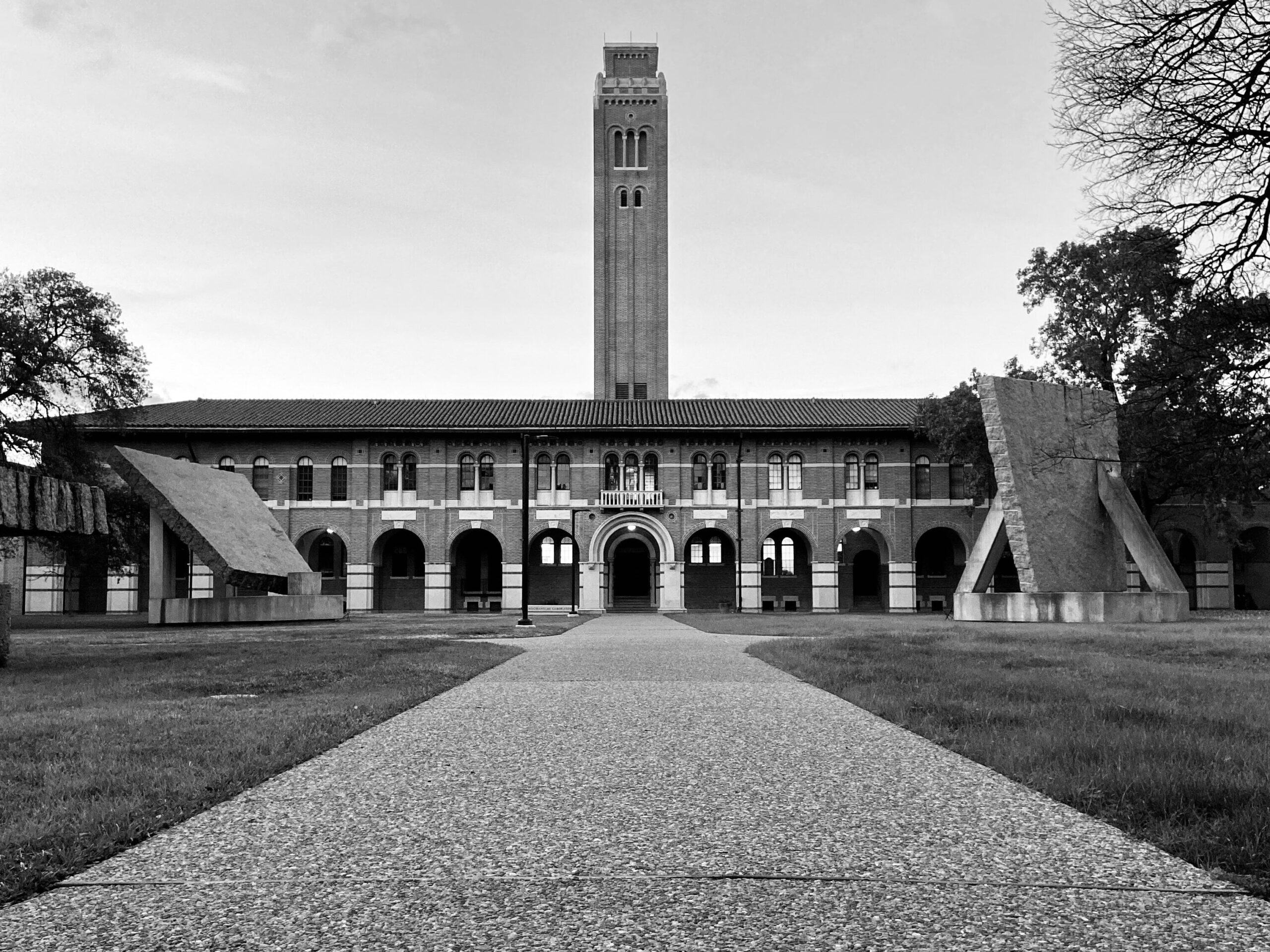
Rice University Ranking — Introduction
Rice University is a small private university in Houston, Texas and one of the country’s top schools. If you’re considering applying to Rice University, you may wonder how it compares to other elite colleges. The Rice University ranking can help you see how Rice stacks up against other popular universities.
According to US News, the Rice University ranking is #15 in the nation.
The Rice University ranking falls high on a variety of ranking lists. From the Rice University ranking in the US to the Rice University world ranking, there’s no denying Rice’s prestige. But what exactly does the Rice ranking mean for applicants? Do strong Rice University ratings mean Rice is a good school for you?
In this article, we’ll discuss the Rice University rankings according to trusted sources. Specifically, we’ll look at the Rice University ranking in US News, Forbes, and the Wall Street Journal. We’ll also explain what you should think about as you review the Rice University ranking in Forbes or anywhere else. Finally, we’ll compare the Rice ranking to those of other colleges in Texas.
What is the Rice University ranking?

National college rankings are fluid, meaning the same school can be rated differently by various agencies. We’ll focus on three: the Forbes college rankings, US News college rankings, and Wall Street Journal college rankings. We’ll talk more about why we chose them later—for now, let’s examine the Rice University ranking in each.
The Rice University ranking in Forbes is #22 overall. In other Forbes college lists, we see Rice University ranking #19 among private colleges and #3 in the south. So, the Rice University ranking differs across different lists.
Next, we have the Rice University ranking in US News and World Report. According to US News, Rice ranks #15 nationally. Additionally, the Rice University ranking for engineering is #16 for undergraduates. The Rice University ranking is #9 for biomedical undergraduate programs. So, depending on the department, Rice’s national college rankings might differ.
Lastly, let’s look at the Rice ranking in Wall Street Journal. This college list, also known as the Times Higher Education (THE) rankings, puts Rice at #18. If you read the page, you’ll find some Rice University lore alongside statistics like student-faculty ratios and tuition. There’s also a useful tool for comparing key stats of adjacently ranked universities.
Despite small differences, the Rice ranking in the US is undeniably high across these trusted sources. But what about the Rice University world ranking—how does Rice perform on the world stage?
Rice University World Ranking
According to THE, the Rice University world ranking is #147 among over 1,800 global universities. For context, universities like Oxford, Stanford, Cambridge, and Harvard top this list—all competitive schools. Even though this Rice University ranking puts Rice behind many schools, it doesn’t discount Rice’s prestige: it’s in the top 10% of global universities, after all.
THE isn’t the only source of global rankings. Let’s take a look at the US News Rice University world ranking. US News places the Rice ranking at #180 among 2,000 top schools worldwide. Although the number is lower, the pool is bigger. So, the Rice University ranking is still relatively high.
When you’re looking at global rankings, remember that they’re by and for people globally. A university you’ve never heard of in Singapore may well be better than NYU! As you compare ranked colleges, you may find your horizons expanding to include institutions overseas. Embrace it—if a university abroad meets your needs, consider applying.
Using college rankings
Now that you’ve seen the national college rankings, consider how they should factor into your college list. First and foremost, you should look beyond rankings alone as you research schools. For more information, check out our guide about how to use college rankings in your search.
Do your due diligence when researching schools to find a good fit. Not every school on your list has to be your dream school, but they should be pretty close. Think of your college “wishlist,” from student enrollment to program offerings to the alumni community. Do you want small or large? Urban or rural? Are you seeking a school with strong first-generation student support? Do you need plenty of experiential learning and internship opportunities?
With thousands of schools to research, national college rankings can be useful. At a glance, they can help you estimate acceptance rates or academic excellence and sort schools by certain metrics. In addition to the best-known rankings provided in this guide, other well-known rankings, such as Niche, can provide further context.
As you determine what type of college experience you want, college rankings can help you narrow down your options. Studying various rankings can give you a sense of a college’s strengths. From there, you can key in on particular metrics and weigh rankings based on what you’re looking for. After that, you can compile and refine a college list with a healthy balance of “safety,” “match,” and “reach” schools.
Reliable Rice rankings

Earlier, we briefly discussed the Rice University ranking in U.S. News and other trusted sources. But why, you may ask, is the Rice ranking in Wall Street Journal “more reliable” than some other source? With so many sources for national college rankings out there, what makes a list trustworthy?
Firstly, Forbes, US News, and WSJ employ a variety of primary sources and data points to calculate rankings. In effect, this provides a cross-section of a university’s campus and academic life as well as student outcomes. Each source also publishes its methodology every year. In sum, these sources provide cohesive, relevant information for college applicants to evaluate schools.
Yet, with different Rice rankings on each list, which one is truly the best? Since every ranking methodology is slightly different, there’s no best or truest Rice University ranking. Rather, each source compiles certain Rice University ratings: Forbes is more outcome-focused, while U.S. News heavily weighs campus resources. Consider the factors you value when referring to rankings.
Regardless of these methodological differences, it’s clear from the Rice University rankings that Rice is a top school. Even so, let’s briefly discuss each source’s methodology.
College ranking methodologies — Forbes vs. U.S. News vs. Wall Street Journal
The Forbes college rankings are published annually by the business-oriented Forbes magazine. The Forbes college rankings rank 500 American universities, focusing on:
- Alumni salary
- Debt
- Graduation rate
- Forbes American Leaders List
- Return-on-investment
- Retention rate
- Academic success
Similarly, the US News college rankings are also published annually but rank just under 500 schools. In contrast to Forbes, US News considers 10 high-level ranking criteria in their college rankings:
- Graduation rate
- Retention rate
- Social mobility
- Graduation rate performance
- Undergraduate academic reputation
- Faculty resources
- Student selectivity
- Financial resources per student
- Average alumni giving rate
- Graduate indebtedness
Finally, the annual Wall Street Journal college rankings are based on four pillars with their own sub-criteria and weights:
- Resources
- Engagement
- Outcomes
- Environment
As you can see, the US News college rankings and others are reliable because of their wide-ranging criteria. In addition, years of solid rankings backed up by published methodologies and actual outcomes have built trust among applicants.
Rice University Ranking vs. Best Colleges in Texas
As one of the best colleges nationwide, how does Rice compare to other Texas schools?
Well, it may not surprise you to learn that Rice University is among the top 10 schools in Texas. To learn more about Texas’ top 10 schools, check out our article on the best colleges in Texas.
Below, we’ve laid out some of the top schools in Texas and how the Rice University ranking compares. Please note the below rankings are for the US, not the world.
| School | Forbes Ranking | U.S. News Ranking | WSJ Ranking |
| Rice University | #22 | #15 | #18 |
| University of Texas at Austin | #31 | #38 | #60 |
| Texas A&M University | #50 | #67 | #93 |
| Southern Methodist University | #169 | #72 | #94 |
| Baylor University | #257 | #77 | #188 |
| Texas Christian University | #302 | #89 | #179 |
| The University of Texas at Dallas | #97 | #151 | #236 |
| University of Houston | #152 | #182 | #323 |
| Texas Tech University | #159 | #219 | #401–500 |
| Sam Houston State University | #481 | #263 | #501–600 |
Given the high Rice University ranking, Rice is clearly one of the best Texas schools. Indeed, many lists have Rice ranking #1 in Texas in addition to being one of America’s top universities. With the high Rice University ranking for engineering and Rice’s industry-leading architecture program, it’s no coincidence that sixteen Rice faculty and alumni have served as astronauts or NASA Administrator.
However, remember that rankings aren’t the final word on whether a college belongs on your list. For example, if another Texas school, like Baylor University, meets your financial needs or has a program you are excited about, don’t hesitate to apply. Where you’ll enroll is a personal choice that will depend on factors outside of college rankings.
Rice University Ranking Trends
The Rice University ranking may be high now, but has it always been that way? Was the Rice ranking higher in the past?
Not really. If you comb the archives of each of these sources, you’ll find that Rice University rankings have remained consistently high over time. This includes their overall ratings as well as their undergraduate/graduate offerings and student outcomes.

Since 1988, Rice University rankings have put Rice within the top 20 schools in the country. In fact, the Rice University ranking in US News jumped two places from 2021 to 2022, from #17 to #15. Additionally, the Rice University ranking for engineering and other graduate programs remains high. From these high Rice University rankings, we know that Rice continues to offer high-quality education.
Moreover, the Rice University rankings continually show that Rice is a good value school. In other words, a Rice education is comparatively affordable while providing students with positive alumni outcomes. Overall, the Rice University rankings tell us that you’ll get a lot of bang for your buck, so to speak. When researching colleges, post-graduation prospects can be just as important as student-faculty ratios and campus life.
Overall, the Rice ranking stays high for good reason: its various programs continue to produce results. Even better, its quality education is rather accessible thanks to Rice’s generous financial aid packages. Faculty quality and alumni outcomes also continue to support these high Rice University rankings.
Rice University Rankings & Your College List
With Rice University ranking high on so many lists, it may be tempting to add it to your college list without a second thought. However, think carefully about the qualities you want in a school beyond rankings.
Rice is a small university, with fewer than 4,300 undergraduate students and less than 8,600 total students. It’s located in an urban area with a rather warm climate. There’s no Greek life, but Rice has close ties with NASA and many highly-ranked academic programs. Although Rice University is test-optional, the average ACT score is 34 to 35, and the average SAT score is 1490–1570.
As you can see, rankings don’t tell the whole story. There are many other qualities that make a school like Rice unique. Certainly, the school’s proven academic excellence can give you an idea of your odds of admission. At the same time, those statistics can’t tell you if Rice is a good fit for you—so always look beyond rankings.
Rice University Ranking — Final Takeaways
In this article, we discussed the reasons behind the Rice University ranking. Year after year, we see Rice ranking high across sources like US News and Forbes. From academic resources to financial aid to outcomes, Rice University consistently delivers. The high Rice University ranking for computer science and other programs speaks volumes for students interested in these fields of study.
We also talked about some differences among the three most highly esteemed college rankings. In particular, we reviewed their ranking criteria and why you may consider different rankings depending on your preferences. No matter which rankings you choose to consider, make sure your college list is ultimately based on specific factors that matter to you.
Feeling good about Rice University but don’t know where to start on your application? Check out our comprehensive how to get into Rice University guide. If you’re already working on an application strategy, check out our Rice University supplemental essays guide for more support.

This guide to Rice University Ranking was written by Gina Goosby. Looking for more admissions support? Click here to schedule a free meeting with one of our Admissions Specialists. During your meeting, our team will discuss your profile and help you find targeted ways to increase your admissions odds at top schools. We’ll also answer any questions and discuss how CollegeAdvisor.com can support you in the college application process.
